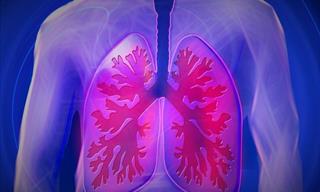
Why is sepsis so dangerous?
"If you don’t treat sepsis, it can cause septic shock, which is an advanced state of infection in the body that causes very low and dangerous blood pressure," says Dr. Carmen Polito, Assistant Professor of Medicine at Emory University Medical School. When your body is in a state of septic shock, it's very difficult to improve blood pressure through IV, which means that it is very difficult to regain proper blood flow to the organs needed to keep them functioning.
Since there is no test for sepsis, it’s very difficult to diagnose until the body reaches a state of septic shock, but what doctors do know is that sepsis is caused by four types of infections: pneumonia, appendicitis, urinary tract infections, and cellulitis. Symptoms of sepsis are very similar to those of septic shock and both go hand in hand, so if you experience a combination of the following symptoms, it is highly recommended that you consult your family doctor to see if you need lifesaving treatment.
related_articles
5 of the most common sepsis symptoms
1. Cold, clammy skin
"When the body experiences sepsis, it focuses on sending blood to the most vital organs, such as the heart, kidneys, and brain, then to less important areas like the skin," states Christopher Seymour, Assistant Professor of Critical Care and Emergency Medicine at the University Of Pittsburgh School Of Medicine. However, remember that skin that feels cold and clammy to the touch is a symptom of many diseases, some of which are less dangerous - this is a sign of concern only if you also experience other symptoms of sepsis or you have a significant infection.

2. Decreased or dark colored urine
The kidneys are the most severely affected organs during sepsis because they are sensitive to any change in blood flow and pressure. Therefore, the effects of this condition can often be seen in the urine. When the body senses that its blood pressure is low, it tries to store as much fluid as possible, which leads to decreased urination or dark colored urine, Dr. Seymour says.
In extreme cases, someone who is suffering from sepsis might stop urinating completely. Therefore, if you notice such changes in your urine and feel sick, it may be more than just dehydration.
3. Changes in mental state
Confusion, low alertness, and dizziness can all be the result of too little blood in the brain, dehydration, and toxins that enter the body and contaminate it. If you experience septic shock, all of these symptoms will appear, and Dr. Seymour adds, “These will be the most extreme sensations you will ever feel in terms of these symptoms." Dr. Seymour stresses that these symptoms must occur with infection for them to be treated as symptoms of sepsis, as these are also common symptoms of a stroke, for example.

4. Increased heart rate
In the case of sepsis, you will not only experience an accelerated heart rate, such as after a morning run, but you will feel that your heart is pounding even while relaxed. The average pulse at rest is 60-90 beats per minute, so if you measure your heart rate at rest and find it to be over 90, it may be a sign of sepsis, says Dr. Coopersmith. When afflicted with sepsis the body increases heart rate to improve circulation and prevent tissue damage.
5. Difficulty breathing
If you do not have a medical condition that causes breathing difficulties, except for pneumonia leading to sepsis, you may have sepsis. As in the case of the previous symptom, this symptom is also caused by the body's need to pump more blood into its organs, in which case it is important to enrich the blood with oxygen.
Because of this, the body tries to breathe faster, which causes unpleasant feelings such as difficulty breathing. Some patients develop shortness of breath that makes it hard to keep a healthy breathing rate. Therefore, if you experience this symptom along with a few others on this list, don’t ignore them and just hope they’ll pass.
As we’ve said before, if you experience a combination of these symptoms along with an infection, all experts recommend that you get medical help. You shouldn't delay as sepsis causes damage to the body that can develop and worsen over a few hours, and the faster you treat it, the more your body will prevent injuries that will worsen your health later in life.
While the treatment varies from person to person, it is usually an aggressive process because quick action is needed; First, the doctors will treat the infection, provide the body with antibiotics and try to increase blood pressure by fluid infusion. They will then try to figure out exactly what the source of the infection is and act accordingly - in some cases, surgery or drainage is needed to control it.
When it comes to sepsis and septic shock, remember that early detection is the most important thing in order to get the best treatment for you. If you are concerned that you are suffering from this condition, contact your doctor immediately.
 Go to BabaMail
Go to BabaMail




























